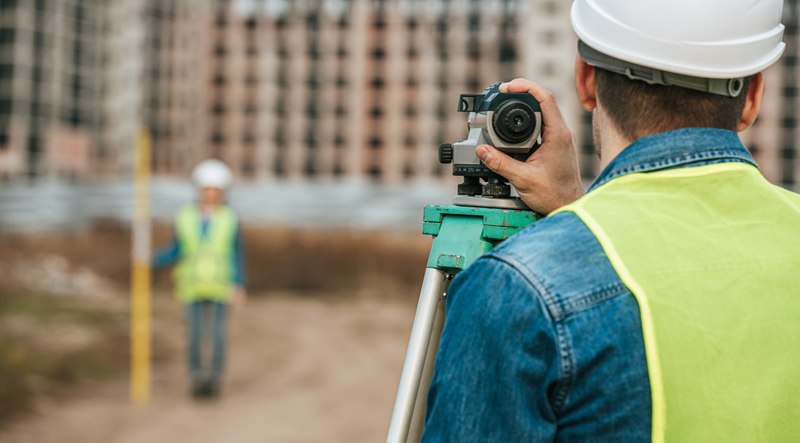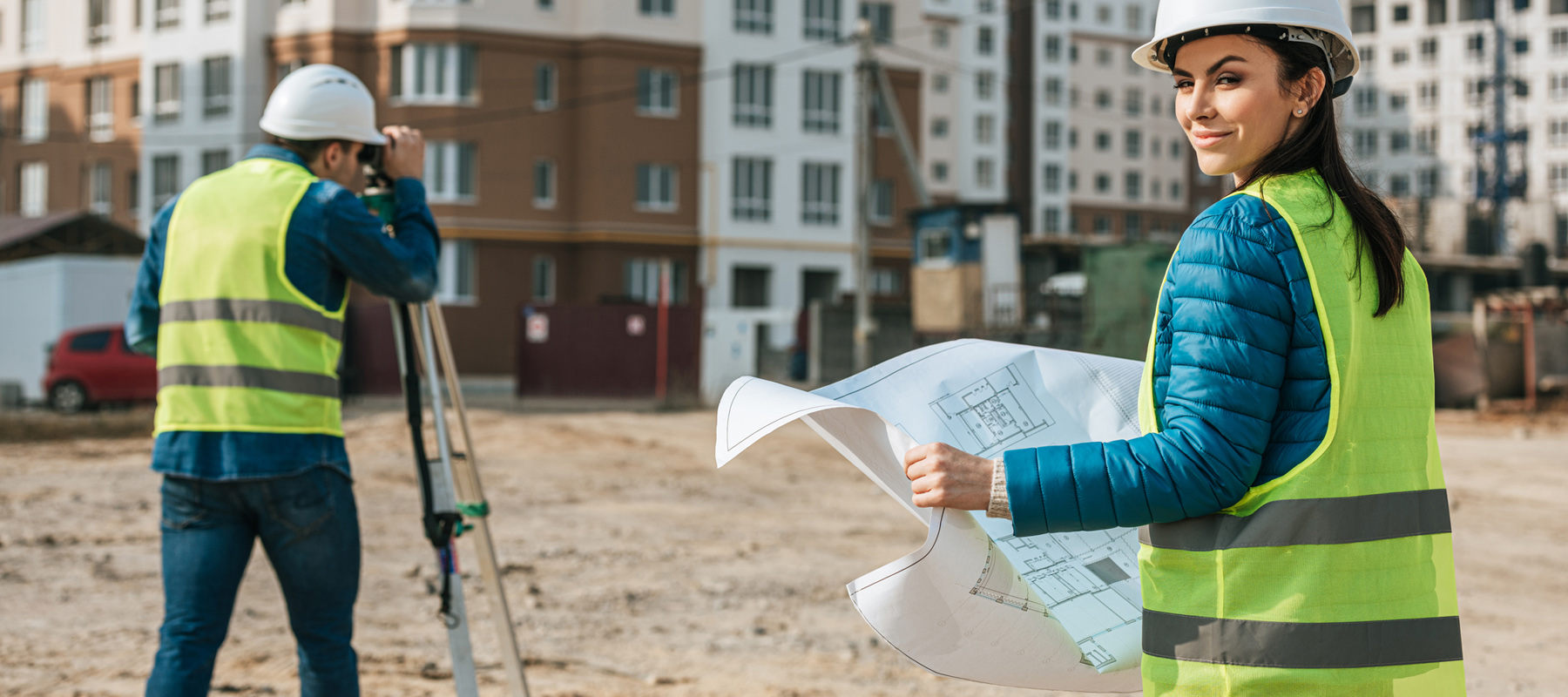How Much Does a Construction Survey Cost for Build Sites and Excavation Projects?
Last Updated: December 06, 2023

Fact Checked By: Ryan Maguire
On This Page
Before any construction project starts, there is a thorough planning stage to ensure everything runs smoothly.
Part of this planning stage is a construction survey, which establishes the correct boundaries and layout of a project. Without a proper survey, there are a host of issues that can arise down the road.
Construction Survey Cost #
A construction survey by a professional surveyor typically costs $400 - $1,200 on average. Cost impacting factors:
Land size - Larger lots require more measurement time.complex
Scope - Staking perimeter corners only is cheapest. Full topo surveys cost more.
Improvements - Locating existing structures, utilities raises cost.
Terrain - Heavily wooded areas or steep slopes add effort.
Precision - Verifying precise elevation points costs additional.
Always hire an experienced, insured surveyor. Get quotes before starting any project requiring property lines or surface features.
For context, a basic survey for standard half-acre lightly wooded lot often ranges $600 - $1,000. High-precision surveys or multi-acre rural land with improvements can run $1,200 - $5,000+.

Real Construction Survey Cost Examples #
"I purchased a vacant lot to build a home on. I paid a survey company $775 to survey the land perimeter, stake out corners, and mark planned utility trench routes for the builders." - Amanda T.
"We needed certified elevation data for a large commercial site development project. A surveying engineer conducted detailed topographic surveying across the 15 acre property with 2' contours. The precise survey cost $8,200." - Michael S.
"As part of the permitting process for our new warehouse plans, the county required a certified boundary survey and staked corners from a licensed surveyor. The verification survey was $1,550." - Melissa D.
"When preparing to build on our rural 5 acre parcel, I first had a surveyor locate and mark existing underground power and gas lines plus old sheds. Identifying those items cost $850 which ensured no issues later." - Steve W.
As shown, typical construction survey costs ranged from $750+ for basic boundary stakes to $1,000s+ for precise elevation verification or improvements discovery across larger sites before breaking ground.
What Is a Construction Survey? #
Simply put, construction or building surveying is the process of staking out reference points to guide the construction of new structures.
Typically, these reference points are determined using a coordinate system designed or selected for that particular project.
Though most commonly done before a job starts, a survey can be utilized during a project and even after completion. Pre-construction surveys are meant to set the markers to be referenced over the course of the job and usually physically mark the ground to indicate where structures are to be built.
Surveys done during construction are used to figure out where other features must go or to ensure the accuracy of the project.
Post-construction surveys are primarily to check final results and compare the finished job to the plans.
All construction surveys analyze the plot of land for its constructability but also include an analysis on its topography.
If nothing else, a construction survey should always be completed before any project starts.
The Survey Process #
Research Records - Surveyor researches property records, deeds, and plat maps for boundary references.
Mark Control Points - Identify control points with stakes or tags around perimeter for measurement reference.
Take Measurements - Use equipment like a total station, GPS, or laser scanner to measure boundaries and topography.
Draw Plot Map - Create a CAD plot map detailing boundaries, physical features, contour lines, elevations.
Add Improvements - Locate any existing structures, fences or utilities on the property within survey area.
Mark Boundaries - Clearly tag boundary corners and install flagged stakes around perimeter edges and key points.
Generate Report - Prepare legal land survey report stamping measured boundaries and certifying accuracy.
Review Results - Walk the site with client to visualize boundaries and discuss remaining questions.
Revise If Needed - Make any essential map revisions if undiscovered obstructions appear later.
Following these steps produces an authoritative certified land survey to guide construction planning.
Construction Surveyors vs. Land Surveyors #
People often think that construction surveyors and land surveyors are essentially (if not entirely) the same thing.
However, there are quite a few differences between the two positions.
A construction surveyor is responsible for inspecting and measuring portions of land that are being considered for a variety of construction projects. The type of project determines the details of a surveyor's job, with different sizes and types of construction jobs requiring different experience and knowledge.
However, most surveying jobs draw from the same basic set of skills. In addition to collecting information about the plot of land (boundaries, curves, elevation, size, etc.), construction surveyors map out the land and compile reports about how the space should be used and why. This information is then passed to engineers, landowners, and others so that they may determine the best and safest uses for the land.
A land surveyor, on the other hand, is a licensed professional who directs survey teams and is considered legally responsible for the resulting survey results. Most land in the U.S. is surveyed in some way by licensed land surveyors and their teams.
Land surveyors usually write up the legal descriptions of land for deeds, leases, and other property documents. It is not uncommon for them to perform court exhibit surveys to aid in settling boundary and land disputes, subdivision issues, and traffic accident investigations.
